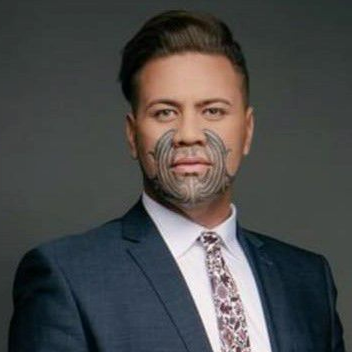OPINION: As Taiwan grapples with escalating tensions with China and seeks international support, genuine recognition of its indigenous peoples remains elusive.
A few weeks ago, I joined 19 other journalists from around the globe, invited by the Taiwanese government to share its story.
The brief was straightforward: Taiwanese government representatives put us in front of academic think tanks and government ministers to draw conclusions about Taiwan’s path to tino rangatiratanga (self-determination).
Taiwanese fighter jets flew across the Taipei skies and dance troupes performed their hearts out for the President and other global officials to mark their national ‘Double Ten’ celebrations.
As I sat among diplomatic allies and officials during this year’s Double Ten celebrations — an event where the country publicly celebrates its independence — I couldn’t help but feel saddened by the lack of visibility of Indigenous peoples in these patriotic festivities.
Local reports at the time highlighted the continuing threats from China, and in his state-of-the-nation speech, President Lai ching-te reaffirmed the country’s position: “We must strengthen resilience throughout Taiwan in national defence, economic livelihoods, disaster prevention and democracy.”
‘Not an easy task’ to be indigenous in Taiwan
While the pomp and ceremony were impressive, it was a candid conversation with Ljaucau Zingrur, the Minister of the Council of Indigenous Peoples, that sparked deeper reflection on the complexities of Indigenous self-determination in a country striving for international recognition as a sovereign state.
Minister Zingrur concluded that it is “not an easy task” to be Indigenous in Taiwan.
“It requires us to be multifaceted and versatile in different skills. We still want to preserve our traditional knowledge, practices, and way of life,” he said.
But, on a sadder note, he added “We have made slow progress in language revitalisation and securing an elderly health programme.”
The irony is that while Taiwan grapples with escalating tensions with China and seeks international support, genuine recognition of its Indigenous peoples remains elusive.
The state officially recognises 16 Indigenous tribes, yet a quick visit around the island reveals communities that assert there are more.
Global indigenous support
Taiwan, formally known as the Republic of China, is self-governing. It has its own economy, and democratic system. In contrast, China insists that Taiwan is part of its territory and promotes a “One China Policy,” which asserts its rule over the island.
As I travelled across Taipei with my fellow journalists, it became apparent that China is like a pebble stuck in Taiwan’s red band gumboot. While I didn’t see any gumboots, locals, ministers, and academics expressed their determination to stand up for Taiwan.
As an indigenous journalist, I found it challenging to uncover strong leads on the Taiwanese government’s efforts to support Indigenous language revitalisation and improve health and well-being outcomes for Indigenous communities.
This is notwithstanding the efforts carried out by the Council of Indigenous Peoples to improve social health and education outcomes for its people.
But what became apparent is the impact that the global indigenous peoples have in supporting each other. Minister Zingur remains committed to strengthening connections with Aotearoa, and his hopes for his people are pretty simple.
“I would like for my people to survive, find a way to live, find a way to make ends meet and to sustain themselves”
United over shared histories
Taiwan is a remarkable country, and its Indigenous peoples are much like those on this side of the world—they look, speak, and eat like us…together.
Strengthening our indigenous connections offers an opportunity to improve equitable outcomes in both countries, unite over shared histories while forging a more resilient path that emphasises sustainable living, political advocacy, social justice and cultural revitalisation.


